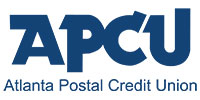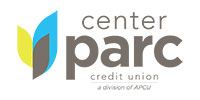 Closing costs are fees and charges due at the closing of a real estate transaction that are in excess of the purchase price of the property. Both buyers and sellers are subject to closing costs and associated fees from the sale of the home.
Closing costs are fees and charges due at the closing of a real estate transaction that are in excess of the purchase price of the property. Both buyers and sellers are subject to closing costs and associated fees from the sale of the home.
How much you’ll pay in closing costs depends on the price of the home, how competitive the local housing market is and the location of the home. These expenses are usually estimated to be between 2% – 5% of the purchase price of the home.
Typical Closing Cost Items and Estimated Fees and Expenses:
- Appraisal fee: The appraisal fee pays for a licensed professional to determine what the home is worth before a lender will extend a mortgage offer. The fees for estimating the market value of a single-family home will typically range from $300 to $450 but could be more for a larger home.
- Credit Report Fee: The credit report fee is what the lender charges to check your credit score and obtain a full credit report. The fee is usually $25 or more per individual borrower on the loan.
- Origination Fee: Lenders sometimes charge a fee for initiating the loan. Origination fees can range up to about $125 and are intended to cover the cost of the lender’s administrative fees.
- Application Fee: Some lenders charge a fee of several hundred dollars to process the application. This again is to cover the administrative fees the lender incurs in processing your application.
- Title Search: If you’re buying a home that’s not a brand new property, lenders will send someone to search local property records for the title of the home to make sure there aren’t any issues with ownership or outstanding liens (money owed on the house). The title search fee is typically around $450.
- Title Insurance: Lenders require obtaining title insurance in case there are issues with documented ownership of the home after the sale. This protects the lender and the cost is usually 0.5 percent to 1 percent of the loan amount.
- Underwriting Fee: This may also be called an administrative or processing fee and it covers costs to evaluate and verify your mortgage. This might be around 0.5 percent of the loan amount.
Important Things to Know About Closing Costs
- By law, all closing costs must be disclosed to buyers and sellers and agreed upon before a real estate transaction can be completed.
- Closing cost components and prices vary from state to state.
- Some closing-related items can be negotiated, including the appraisal, credit check and title search.
- Closing costs are not limited to just purchasing a property, these expenses may also be incurred when people refinance a mortgage or obtain a home equity loan or home equity line of credit. While they may be considered a necessary evil, closing costs ensure that your interest in the real estate transaction is protected and your ownership is solidified until you sell or pass the property on to someone else.
To learn more about home loans and closing costs, please visit our sponsors, Atlanta Postal Credit Union or Center Parc Credit Union– they’ll be happy to help with your specific questions.






